Community Outreach
The Ramaiah Group’s founding family has long since embraced the timeless wisdom of Yogi Narayana, who was based in the village of Kaiwara. This is where we learn to serve and experience the satisfaction of our efforts towards social enhancement.
Our focus on Healthcare and Education is not limited to classroom learning and hospital treatment alone. Our true purpose comes alive through community initiatives.
At Ramaiah Medical College, we focus on sharing awareness and knowledge of better health across larger sections of society. Our community outreach efforts are led by the Department of Community Medicine at Ramaiah Medical College and the Hospital.
The academic training of students in the community is catered towards understanding and addressing the health and social needs of the community, to develop 21st century skills like cross-cultural communication, leadership, critical thinking and problem solving, and to develop the requisite skills of empathy in their careers as medical professionals. Through an exercise of active collaboration and partnership in the community, we have multiple ongoing research initiatives that are contextual to the communities and beneficial to the larger populations focussed on public health.
As part of our outreach program, besides academics and research, our goal is to contribute to the community through clinical services and social initiatives. Faculty who are domain experts in public health, medico-social workers, public health postgraduates and undergraduates together drive these initiatives in our field practice areas, providing not just curative services, but mainly health promotion, disease prevention and rehabilitation services to the community, particularly to the under-served and vulnerable sections of the society.
Department of Community Medicine has its working in three Primary health centre areas in Rural and two Urban primary health centre areas. Our longstanding and trusted partnerships with the government health offices, healthcare providers and the communities in these regions have been cultivated over many years and we hold them in high regard.
Rural Field Practice Areas
Avathi Primary health centre, Devanahalli Taluk - Rural Field Practice area
- Primary Health Care.
- OPD services.
- Implementation of various national health programmes at community level.
- Conducting health screening and follow-up camps.
- Providing health services at open air jail.
- Referral services.
- Health education campaigns in the community about prevailing health conditions.
- Health awareness activities on World Health days of public health significance: World Tuberculosis Day, World Cancer Day, World Diabetes Day, World Heart Day, World Environment Day, World Health Day, World Breast Feeding Week.
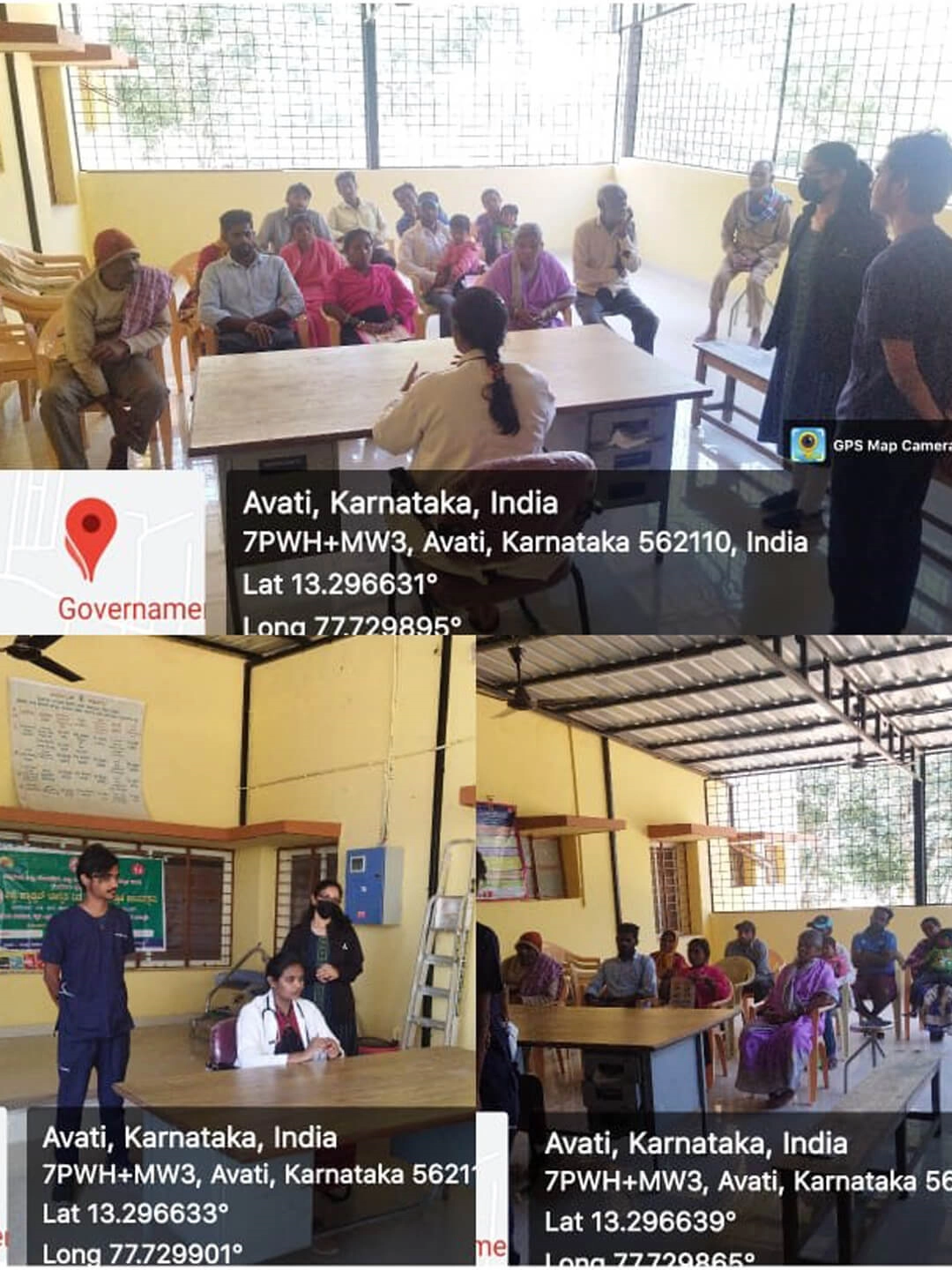
Health Awarenss Activity at Aavathi PHC
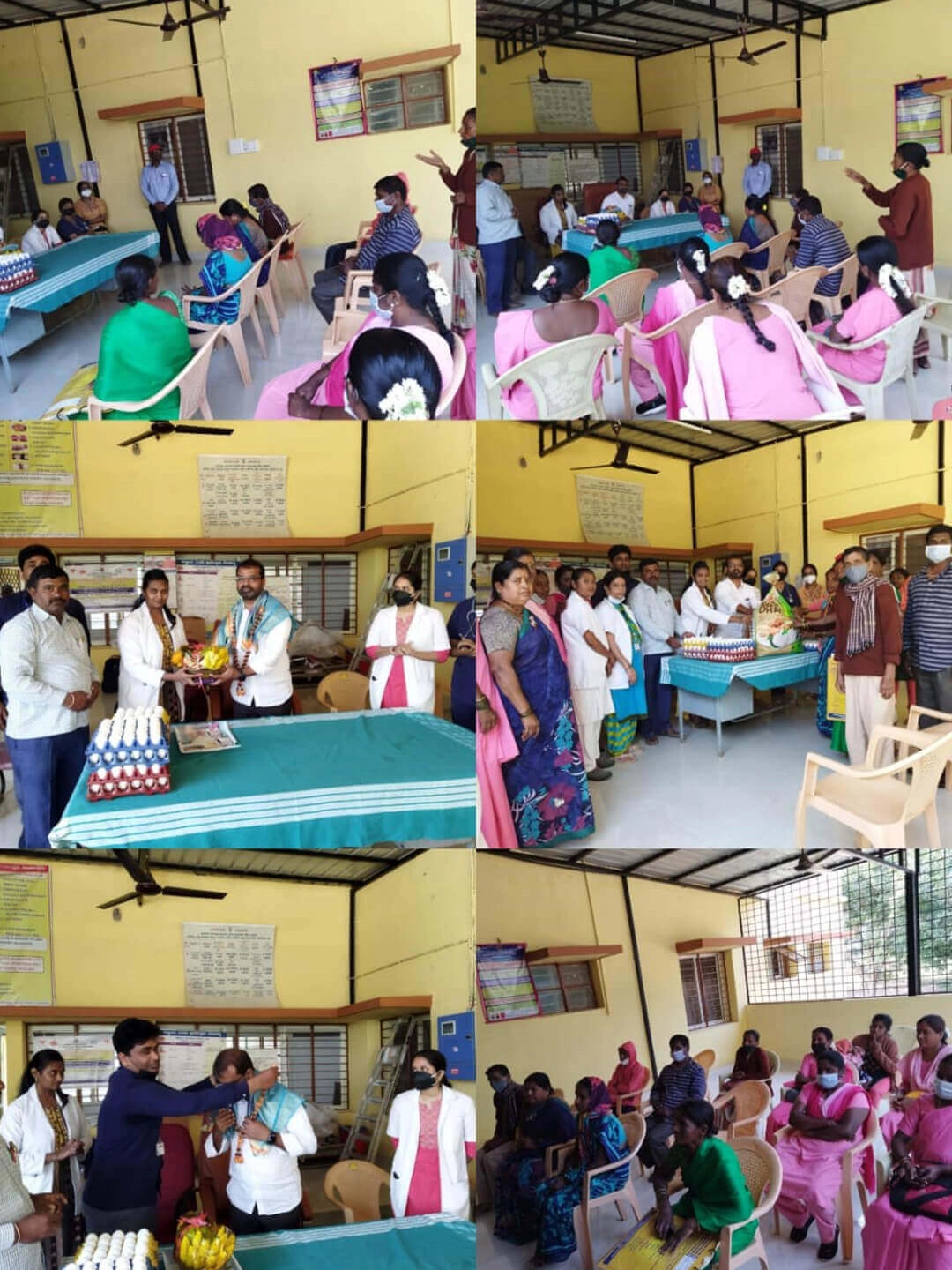
Nutrition Awareness at Avathi PHC
Kaiwara Primary health centre, Chinthamani Taluk - Year 1988
Year 1988
Padma is a 27-year-old woman who lives in Kaiwara. Her last two pregnancies were complicated and resulted in miscarriages. Despite this however, her desire to experience motherhood did not diminish and Padma refused to give up.
A young informed medical intern posted from the Department of Community Medicine, Ramaiah Medical College recommended that Padma get a check-up done at the Primary Health Centre (PHC) in Kaiwara. Worried about the costs and unable to afford a private hospital, she was told about the free facilities and services at the PHC. After regular check-ups at the PHC and with medication to maintain her blood pressure, she delivered a healthy baby.
Padma is just one of the many individuals who has received timely healthcare, thanks to the Primary Health Centre. The PHC conducts surveys and awareness initiatives for villagers, on various relevant issues such as STDs, antenatal check-ups, post-natal check-ups, leprosy, geriatric care, dengue, malaria and other mosquito-borne diseases. The villagers are encouraged to come for primary treatment to the government-supported PHC and sent to the Government Community Health Centre in the nearby Chintamani District in case secondary problems, or the need for surgeries, arises.
Kaiwara as our focal point, we cater to a population of 20,000 spread across 23 villages in the Chikkaballapura District of Karnataka. On the ground, we collaborate with the local panchayat, the Sri Kaiwara Yoginareyana Ashram, the Primary Health Centre and sub-centres, Anganwadi workers (grassroots level workers of the Women and Child Welfare Department) under the Integrated Child Development Services Scheme, the Education Department and teachers.
Medical interns from the Medical College posted at Kaiwara spend the first half of their day in the villages, conducting surveys, health education activities and assist the health workers in their tasks regarding National Health Programs. This has helped the villagers improve their awareness regarding health and well-being.
The medical interns spend the second half of their day assisting the PHC team in clinical services in the outpatient department and inpatient wards, laboratory, and pharmacy. This has supplemented the Administrative Medical Officer’s efforts in providing quality health care that are regular and reliable.
Services
- Primary Health Care through Primary Healthcare Centre
- OPD and IPD services
- Implementation of various national health programmes at community level.
- Conducting health camps.
- Health care services to the Chaithanya Vrudhaashrama.
- Referral services
- Health education campaigns in the community about prevailing health conditions.
- Health awareness activities on World Health days of public health significance: World Tuberculosis Day, World Cancer Day, World Diabetes Day, World Heart Day, World Environment Day, World Health Day, World Breast Feeding Week.
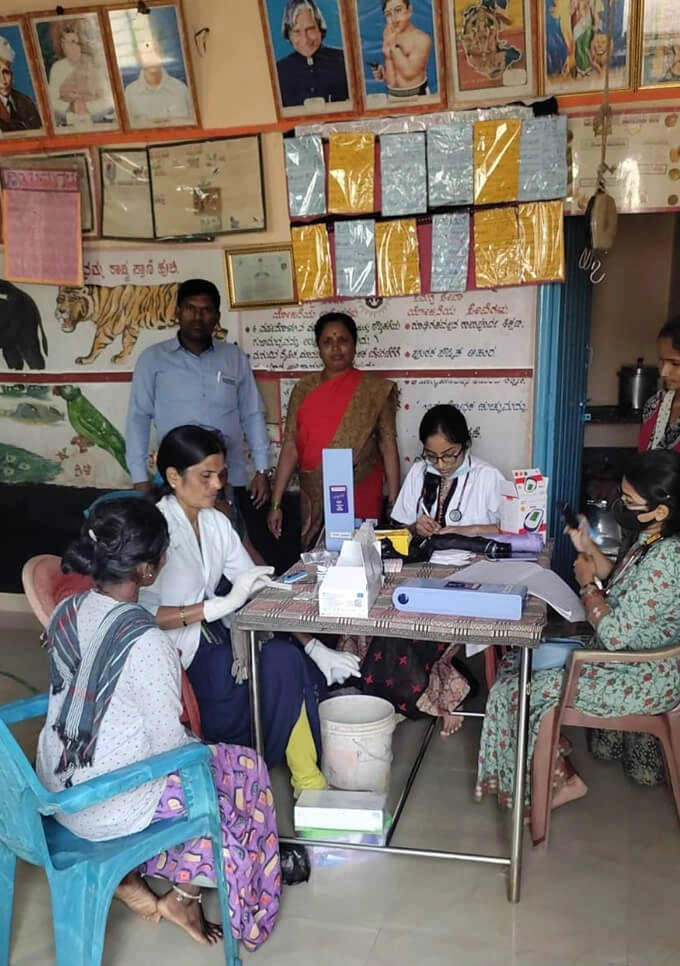
NCD camp at Kaiwara
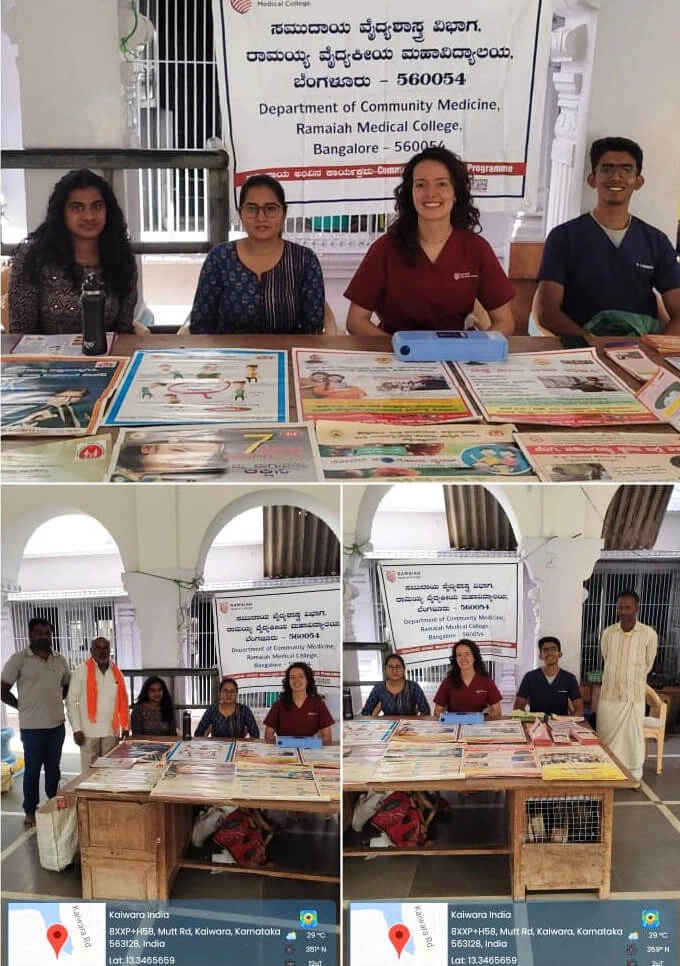
IEC at Kaiwara
Rajankunte Primary Healthcare Centre, Bangalore Urban
- Primary Health Care through the Primary Healthcare Centre
Urban Field Practice Area
Netaji Circle Urban Primary Health Centre
- Primary Health Care
- OPD services
- Implementation of various national health programmes at community level.
- Conducting health camps
- Referral services
- Health education to the community about the prevailing health conditions.
- Health awareness activities on World health days of public health significance: World Tuberculosis Day, World Cancer Day, World Environment Day, World Health Day, World Breast Feeding Week and so on.
Mathikere Urban Primary Health Centre
- Primary Health Care
- OPD services
- Implementation of various national health programmes at community level.
- Conducting health camps
- Referral services
- Health education to the community about the prevailing health conditions
- Health awareness activities on World health days of public health significance: World Tuberculosis Day, World Cancer Day, World Environment Day, World Health Day, World Breast Feeding Week and so on.
MK Nagar, Bengaluru
- Diabetes and hypertension registry
- Monthly free Health Camp
- Free distribution of medicines for diabetes and hypertension
- Referral services
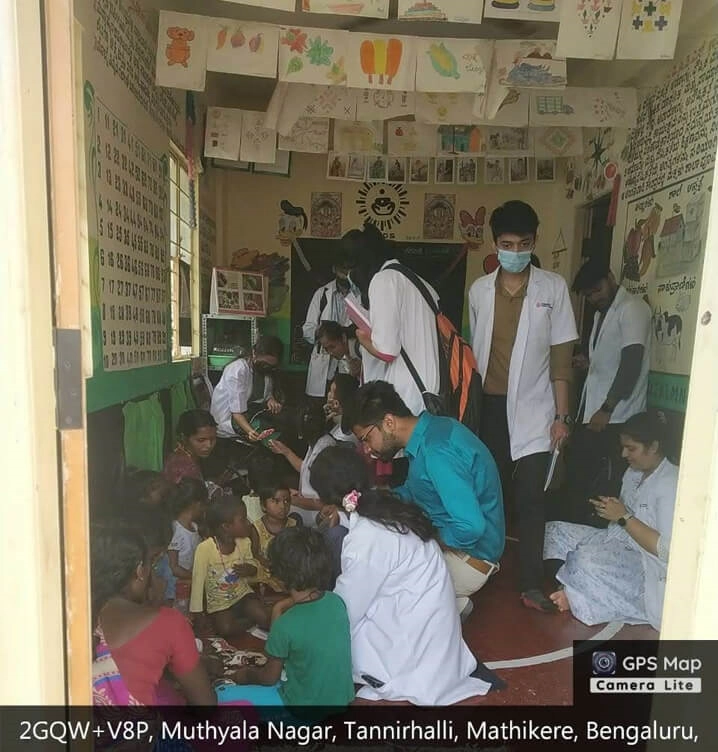
Visit to Anganwadi Centre in Urban Slum
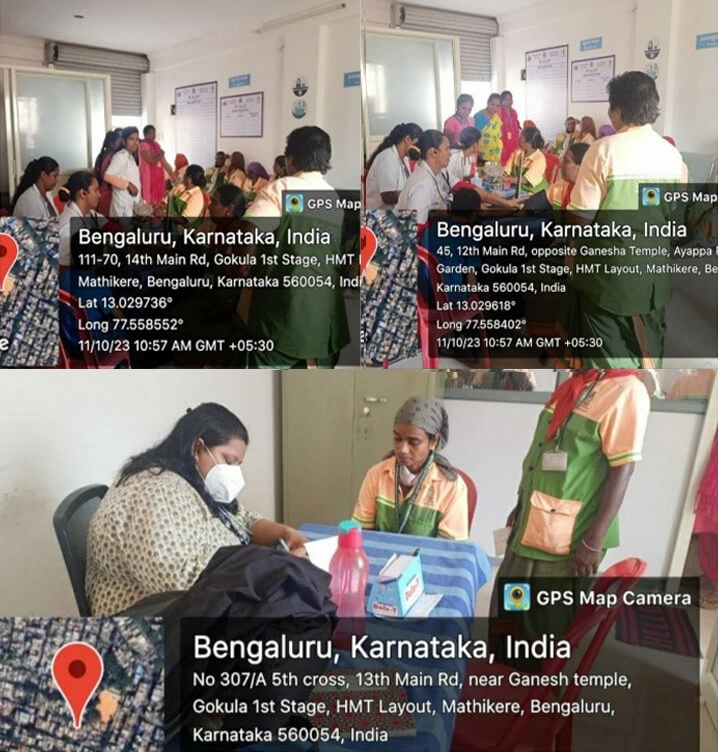
General Health Check-up of Pourakarmika's Under Urban Primary Health Centre
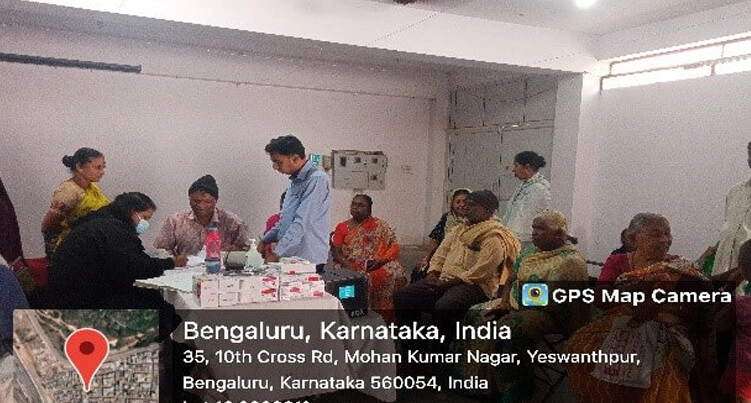
Outreach NCD camp at MK nagar
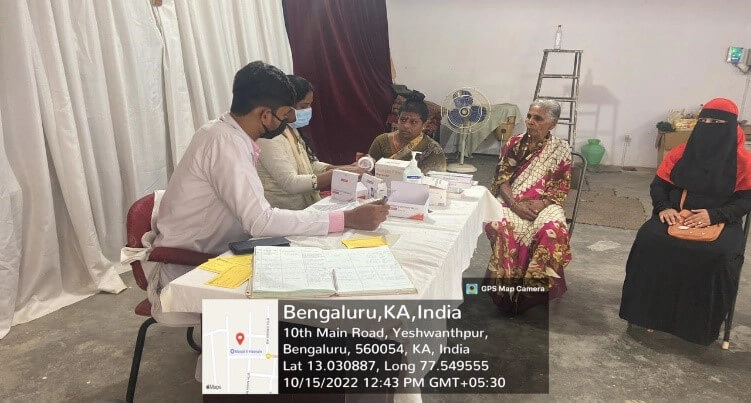
Outreach NCD camp at MK nagar
Other Outreach Activities
Spandana Resource Centre, Kaiwara - Since 2006
Number of students – 15
Sharada is a 6-year-old girl from the village of Kaiwara. A few months after she was born, her parents sensed that she wasn’t like other children. She had flat facial features and difficulty hearing. As she grew older, she showed very limited signs of mental development. She often got violent with her little brother. Neighbours and relatives advised her family to tie her to a tree, claiming that she wasn’t stable enough to run free with other children.
Sharada’s parents were left concerned and dejected, with no idea of how to help their little girl. This is when they heard of the Spandana Resource Centre. Spandana is a special school for mentally challenged children and a resource centre for parents.
In a survey in 2005, covering 36 villages around Kaiwara, Ramaiah Medical College identified 40 children with mental challenges. The Centre was subsequently set up in December 2006 and today caters to 60 students in and around Kaiwara. Run by experienced teachers, this centre provides learning opportunities for these children and offers them the care they deserve.
Some of the facilities offered are
- Educational and rehabilitation services for intellectually challenged students
- Comprehensive multi-skill training and learning by experienced teachers with individual attention and care
- Need based customized rehabilitation catering to the diverse needs of individual children with constant monitoring and technical evaluation
- Vocational training by professionals in candle making, lamp making and other fine arts
- Play area for children equipped with user-friendly toys and appliances, as well as activities like Kho-Kho and throwball
- Free school bus pick-up and drop from respective villages to ensure accessibility
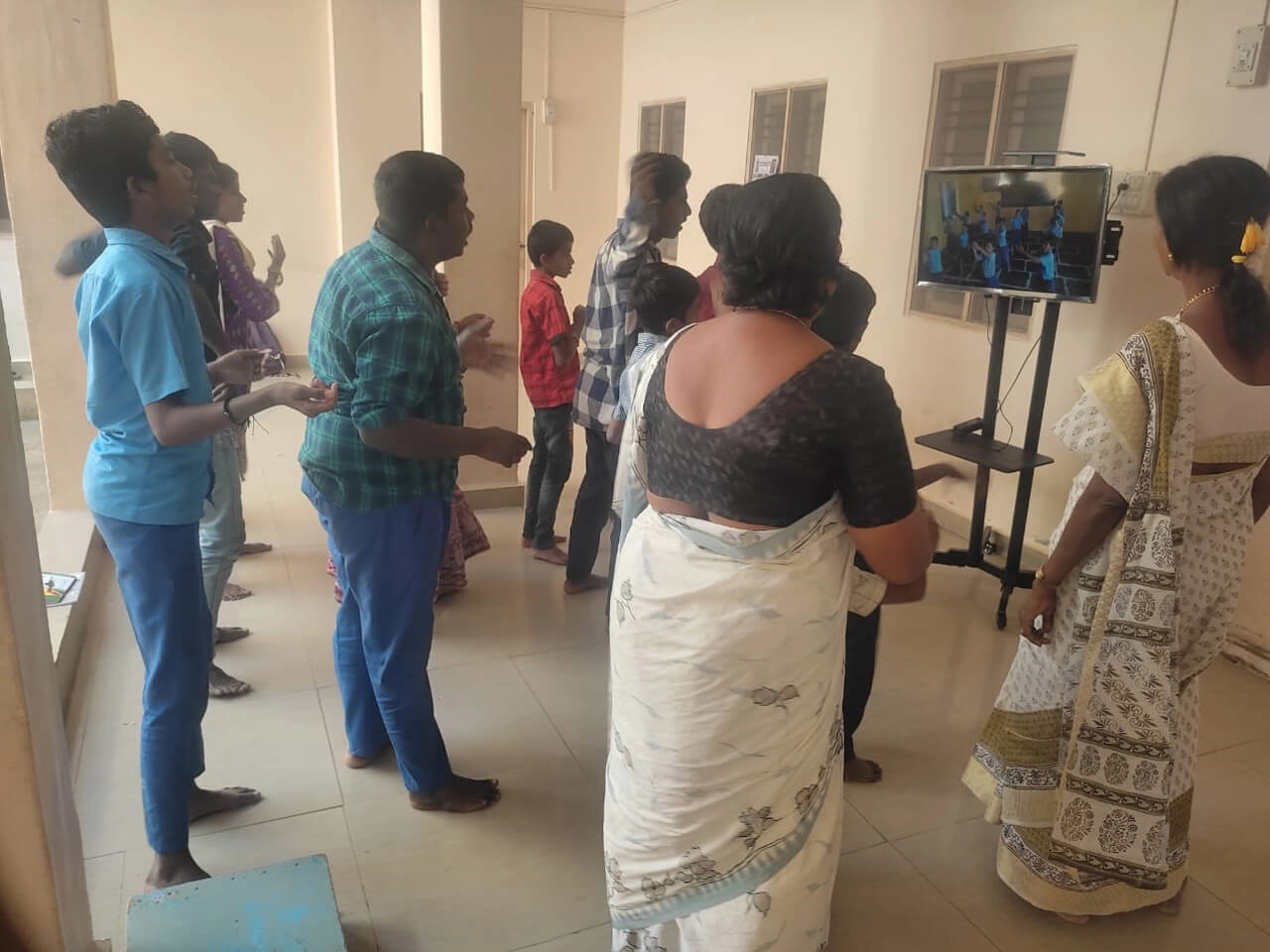
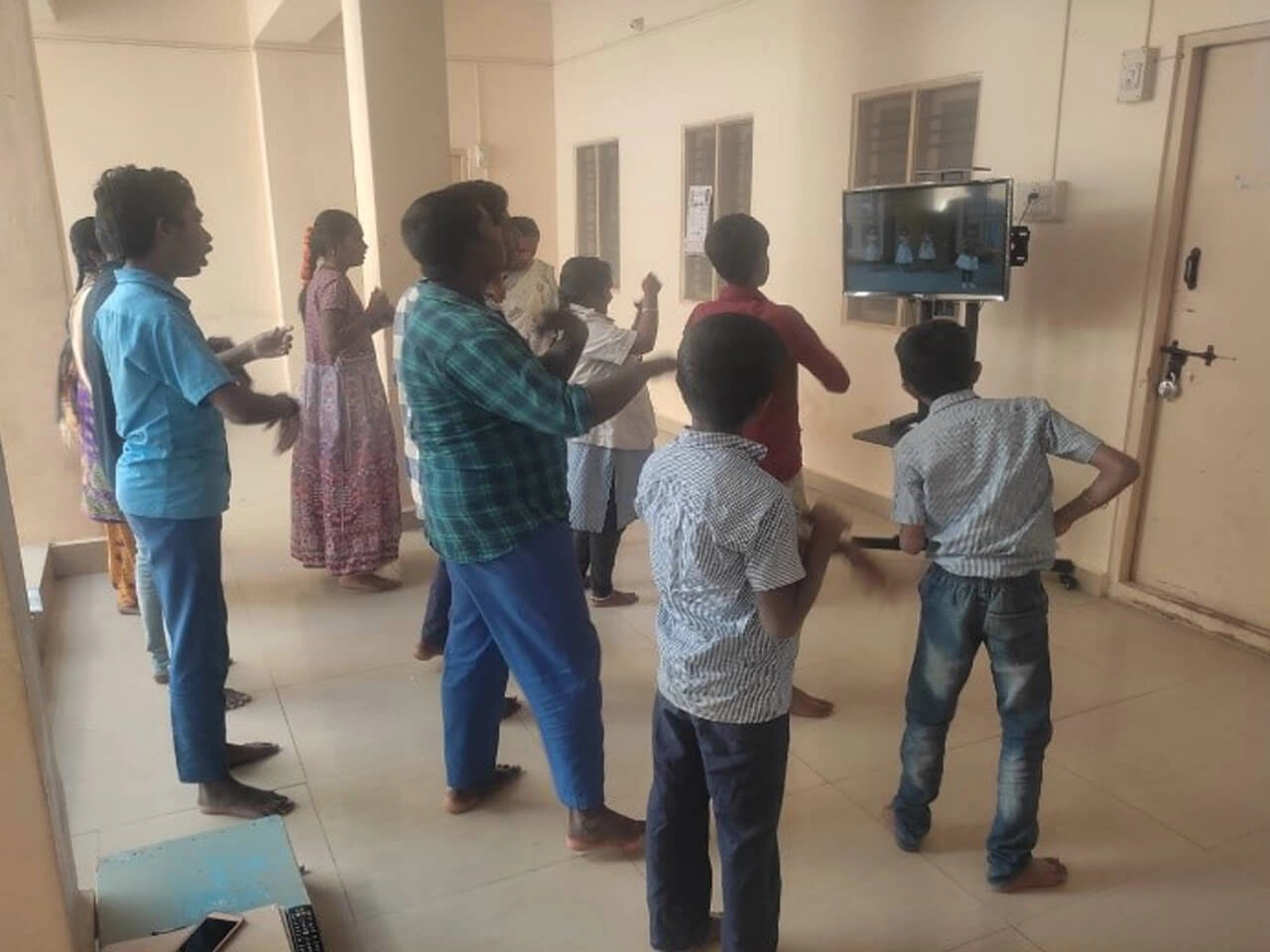
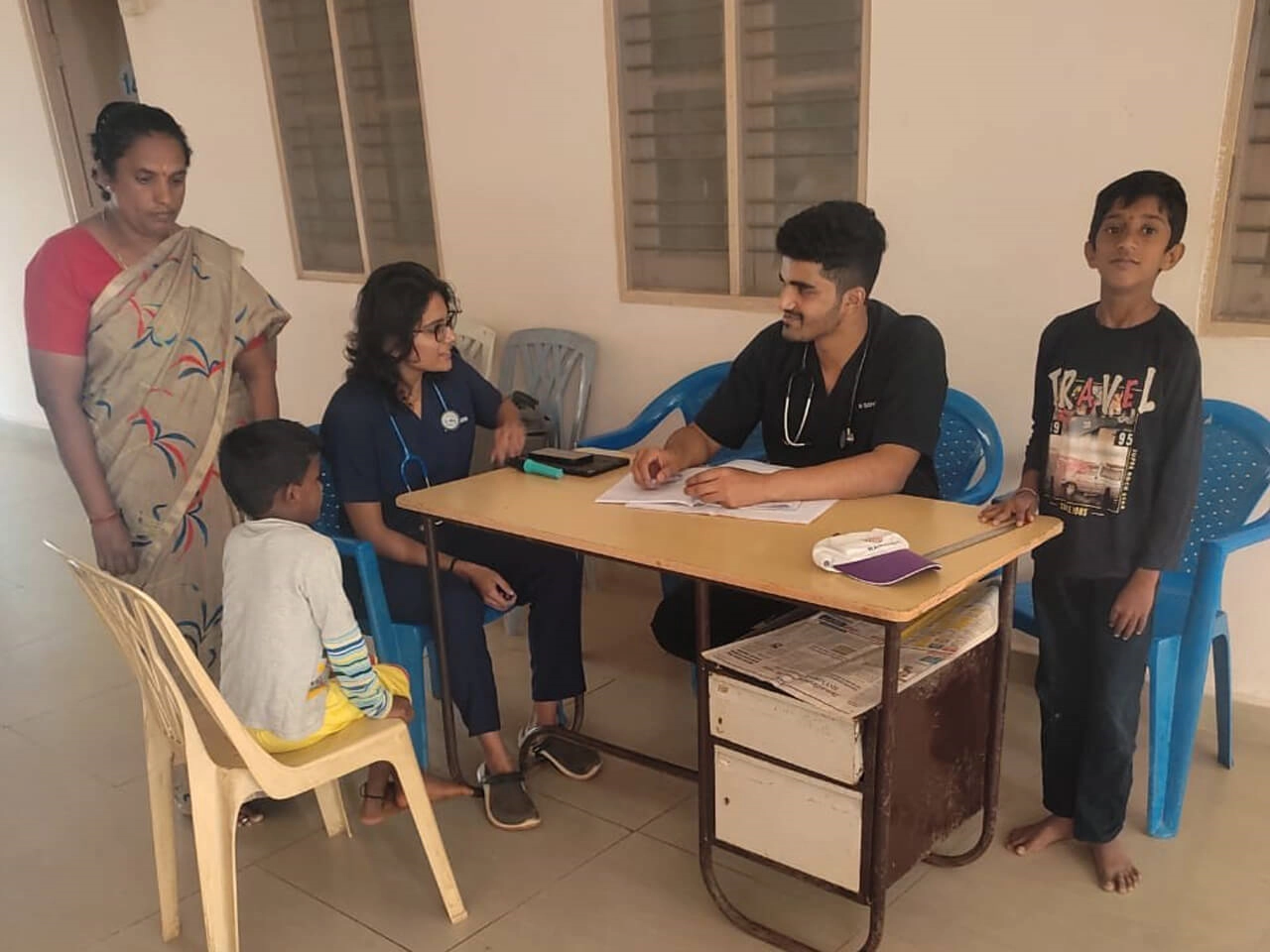
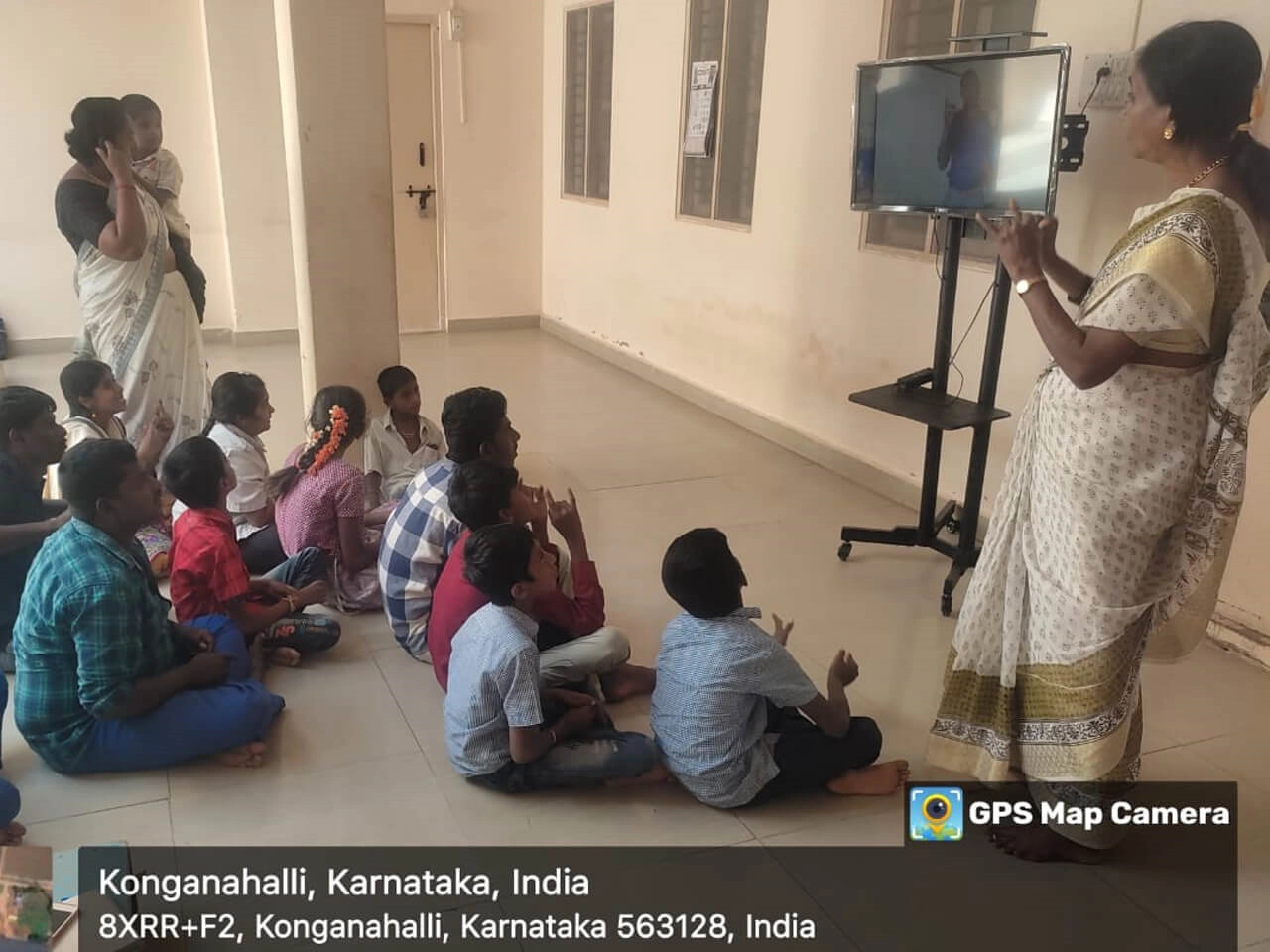
Defluoridation Plant, Kaiwara - Year 2010
Providing water to 200 households in Kaiwara
In the Chikkaballapura district of Karnataka, most tanks and lakes are either dry most months of the year or are polluted leaving ground water as the sole resource of drinking water for residents. This belt in South India is infamous as the fluoride belt and ground water sources are believed to be high on fluoride and therefore, unfit for human consumption. This observation and obvious connection would have been missed if not for a school health examination conducted 16 years ago by the Department of Community Medicine. The high number of stained teeth among children, and other signs of high fluoride intake slowly became more obvious with kidney disorders, poor bone health, stained teeth and mental retardation among adults.
After an analysis of water and urine samples, the hypothesis was confirmed: fluorosis was the problem. The Council of Scientific and Industrial Research (CSIR) was approached to discuss a sustainable solution and soon after, a reverse osmosis plant was set up in Kaiwara. Today, there are 2 tanks of 10,000 litres each; one provides reject water and the other, processed drinking water. This purified water is supplied to over 200 households for a nominal fee of Rs. 5 per 25 litres.
Old Age Homes at Bengaluru and Kaiwara
The Medical College has undertaken the responsibility of providing medical services to four old age homes. As a part of this initiative, which was started in 2009, the department of Community Medicine has adopted six old age homes at Bengaluru and Kaiwara where it offers clinical and referral services along with psychosocial support to the residents of old age homes. Efforts are also made to ensure that they have access to their prescribed medicines. For serious cases, the senior citizens are treated on campus at the Medical College Hospital, at subsidised rates.
Bengaluru
- Sree Rama Old age home, Malleshwara
- Aashraya Old age home, Rajajinagar
- Sree Old age home, Nandini Layout
- Sree Old age home, Manjunatha Nagar
- Sree Old age home, Basaveshwaranagar
Kaiwara
- Chaitanya Old age home
Services offered
- Primary Health Care
- OPD services
- Physiotherapy services
- Periodic health checkups
- Medications
- Referral services.
Tele-consultation services, Kaiwara
Teleconsultation services which was initiated under Indo-Sweden project has continued to extend its services in Kaiwara to offer invaluable support for geriatric patients, providing convenient access to healthcare professionals, ensuring timely medical assistance, and enhancing overall well-being remotely.
Ramaiah Rotary Dialysis Centre at Kaiwara
Ramaiah Rotary Dialysis Centre in Kaiwara delivers essential dialysis services at a subsidised rate for the needy, fostering health and hope for patients with renal challenges through advanced technology and compassionate care
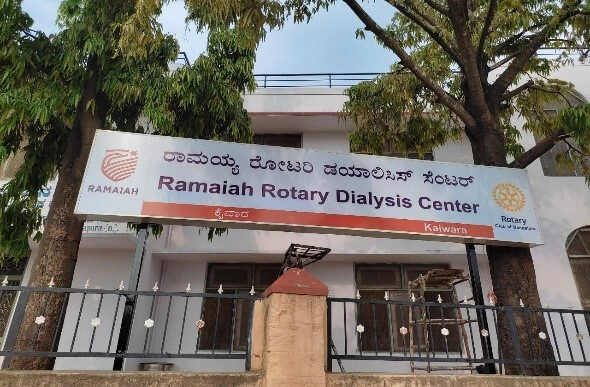
Dialysis unit at Kaiwara
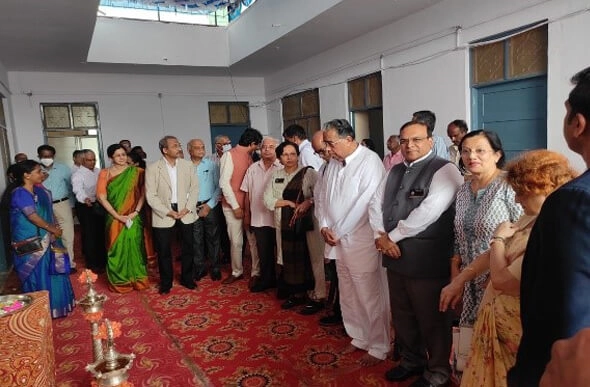
Inauguration of Dialysis unit at Kaiwara
World Breastfeeding Week
During World Breastfeeding Week, Department conducts various awareness programme on campus; and as well as in the urban and rural communities. Health education programme emphasising the importance of breastfeeding and right techniques are conducted among all stakeholders like mothers, nurses, Anganwadi workers and ASHA workers. Various programmes such as Quiz, Jatha, Cooking competition, well baby clinic is organised as part of the awareness sessions. The Department has been awarded for its activity for three consecutive years in 2019, 2020 and 2021 from Breastfeeding Promotion Network of India.
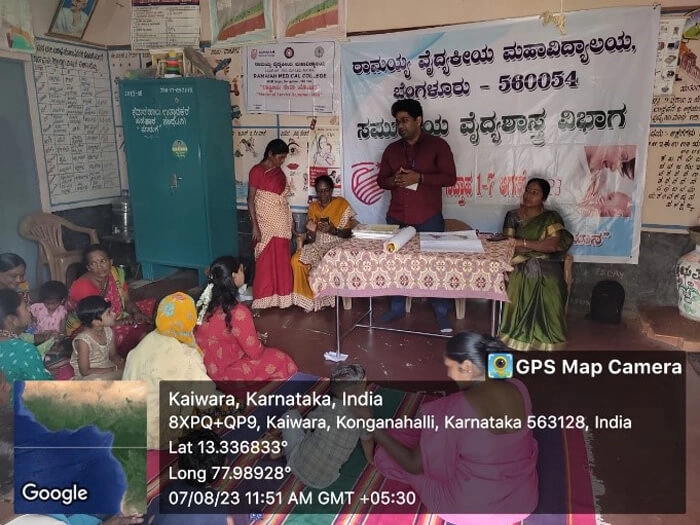
World Breast Feeding Week observations at Kaiwara
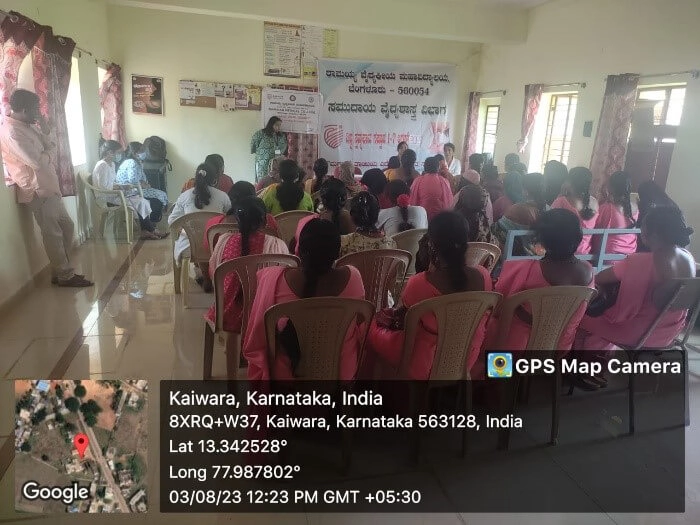
World Breast Feeding Week observations at Kaiwara
School Health Services
The department has conducted annual school health check in association with Sai Mandali Trust in more than 50 schools which were adopted by Sai Mandali trust under Midday meal school Program till 2020. The department has continued to provide Comprehensive school health programme on an annual basis for MLA girls’ school and Nirmala Rani school.
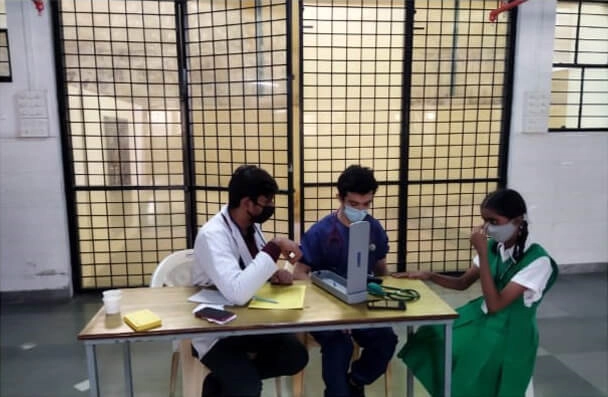
School health services at Nirmala Rani
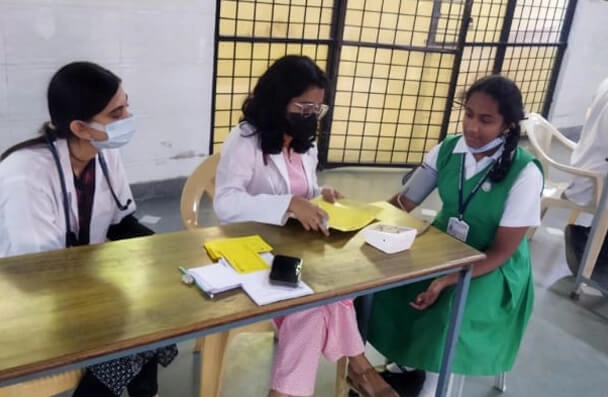
School health services at Nirmala Rani

School health services at Nirmala Rani
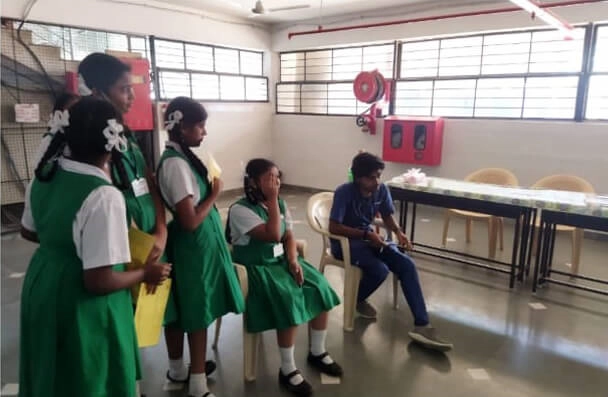
School health services at Nirmala Rani
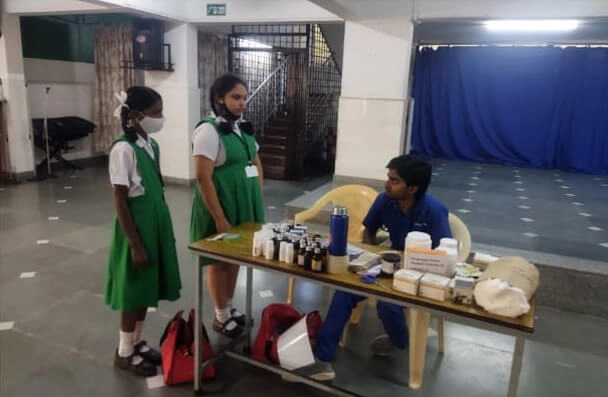
School health services at Nirmala Rani
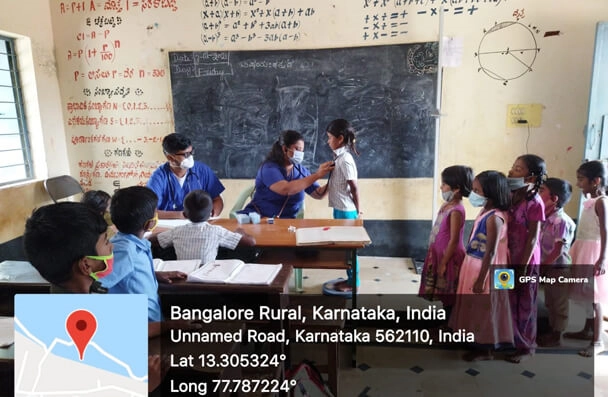
School Health service in Rural area
Family adoption program
In India, around 65.5 % of population resides in rural settings (as per 2020 statistics) whereas availability of health care facilities and services are skewed towards urban set ups. Though adequate healthcare supplies exist in the community, it is the access to healthcare to a rural citizen that is a major concern. Issues like health illiteracy, ignorance about communicable and non-communicable diseases, means to reach health care facility, services, take time off from their daily wages work and workforce shortages are some of the barriers that limits timely and quality health related awareness and care leading to a scenario of ‘Scarcity in abundance’. Hence there is a need to take measures to make healthcare more accessible to the rural and needy population and impart community based and community oriented training to budding healthcare professionals.
Aim
Family adoption program aims to provide an experiential learning opportunity to Indian Medical graduates community based health care and thereby enhance equity in health.
Objective
During the Medical UG training program, the learner should be able to :
- Orient the learner towards primary health care
- Create health related awareness within the community
- Function as a first point of contact for any health issues within the community
- Act as a conduit between the population and relevant health care facility
- Generate and analyse related data for improving health outcomes and Evidence based clinical practices.
Process and activities under Family Adoption Program
- Adoption of 3-5 families by each student in the adopted villages and follow up of the families through their MBBS course
- Providing Primary Health Care to the community
- World Environment Day: Distribution of saplings
- World hypertension day: Community awareness about non-communicable diseases
- Conducting Multi-speciality health camps
- Subsidized inpatient services for referred patients
- Community Health education to the community about the prevailing health conditions
- Referral services
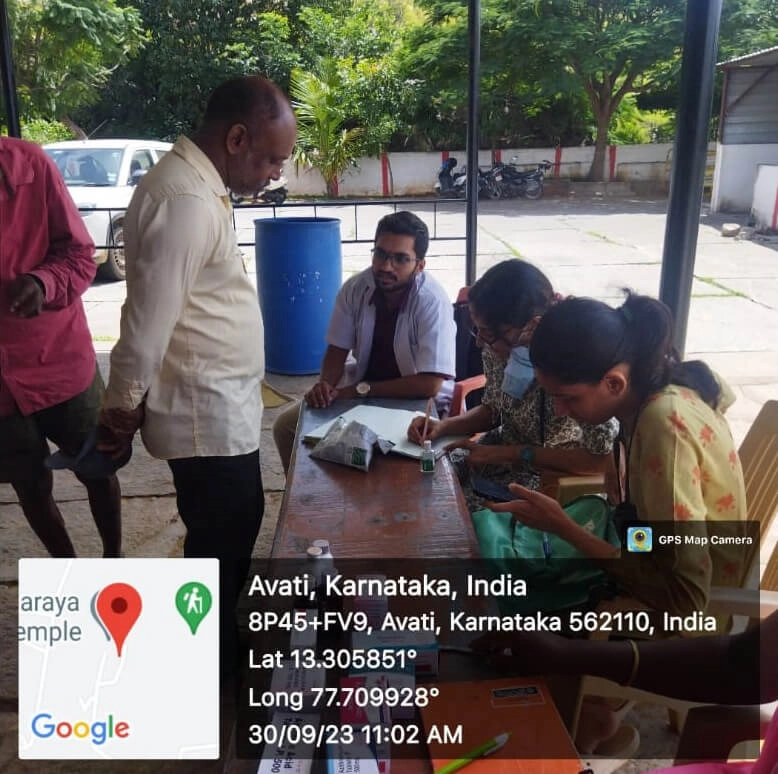
Health Camp in one of the villages adopted under FAP
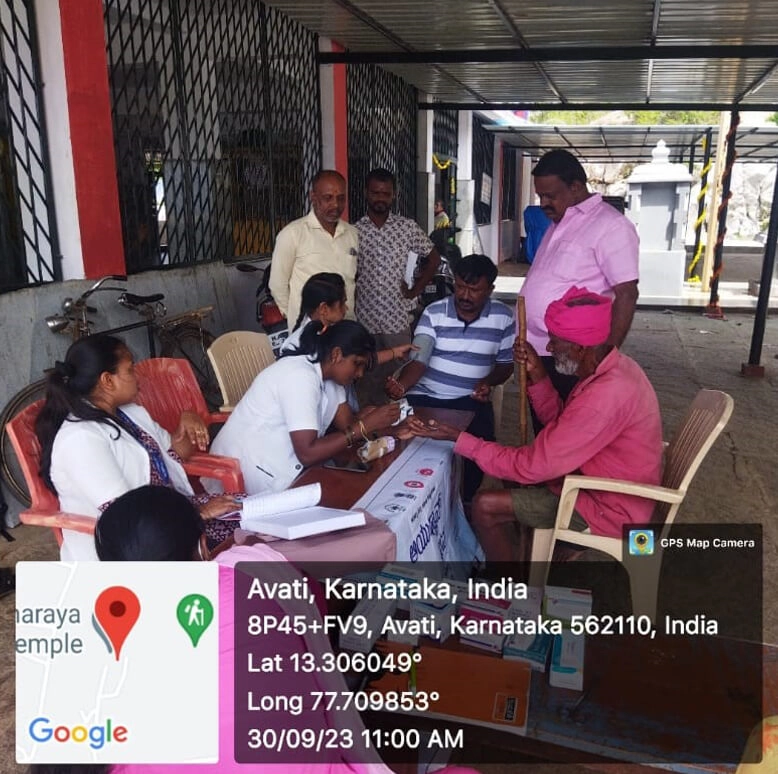
Health Camp in one of the villages adopted under FAP
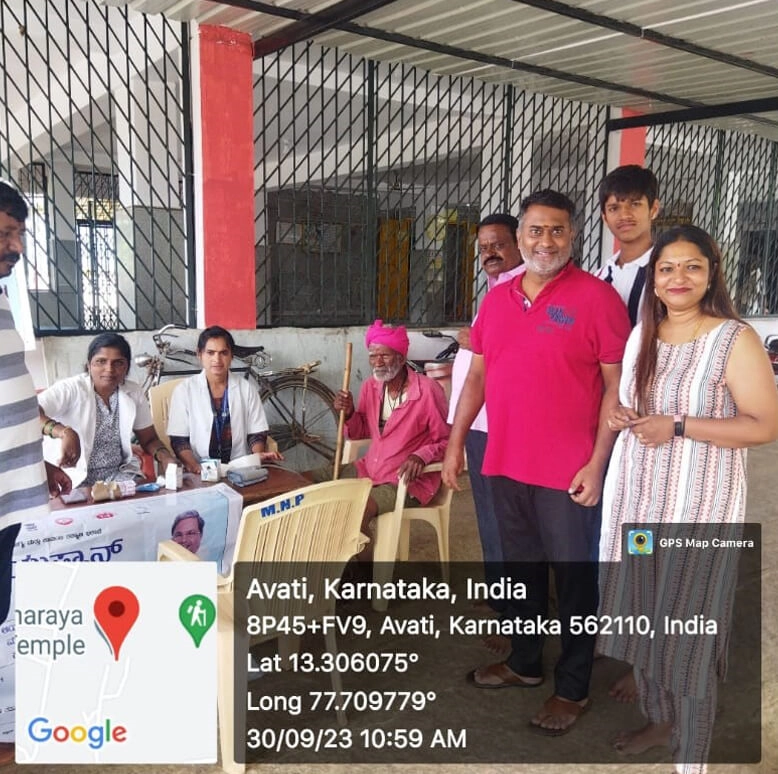
Health Camp in one of the villages adopted under FAP
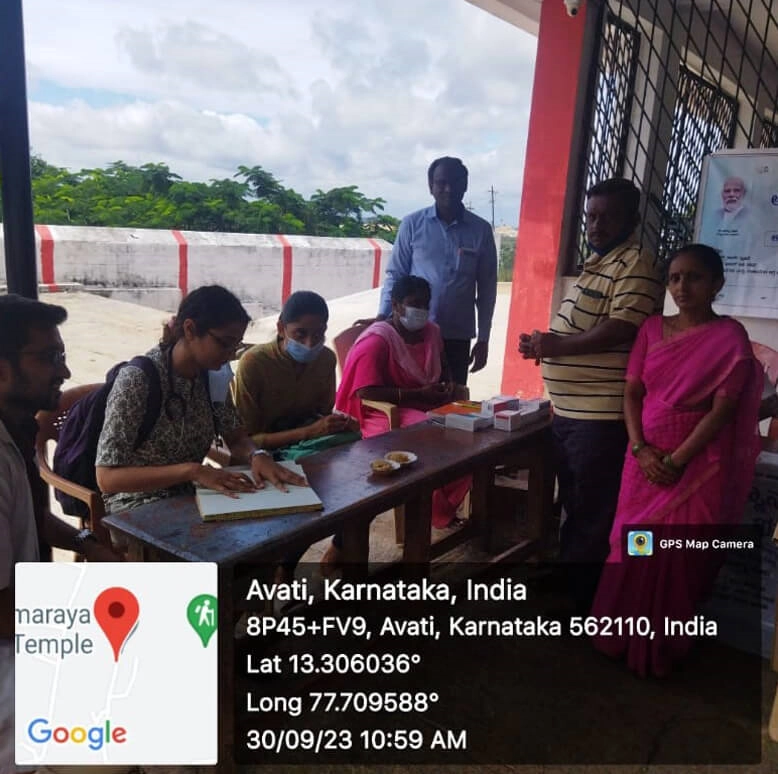
Health Camp in one of the villages adopted under FAP
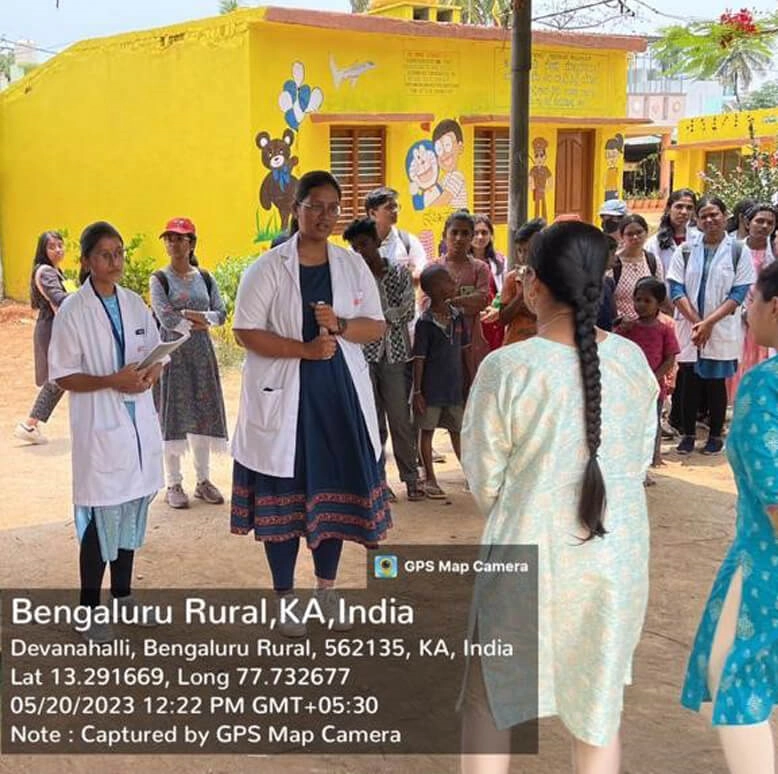
Community Health education by the Students
Community based training programme (CBTP)
Community based training programme (CBTP) is a flagship program of our institution being implemented since 2004 which provides community based experiential learning. With unity in health as the concept, the programme is now being implemented as interdisciplinary programme (IDCBTP) from 2017, first of its kind in the country where five disciplines -medical, nursing, dental, physiotherapy and pharmacy students come together as a team and learn from each other.
The Goals of CBTP
- Ensure value education through service to vulnerable/ marginalised groups
- Strengthen skill and attitude inputs to students to help them serve later as effective doctors and leaders in the society.
- Help the institution to work towards increased social accountability – in its service, training and research endeavours
- Help the students develop appropriate communication skills.
- Working together as a team towards unity for health.
The students actively undergo training in urban and rural area (residential); and participate in various community outreach programs, health camps, and health education initiatives. Values cherished under CBTP are Honesty, Sincerity, Integrity, Empathy, Non-discriminatory attitude, Team work, Leadership qualities. Under the able guidance of practising doctors, students are exposed to customs, traditions, poverty, culture and its effect on health and development as well as family illnesses. The aim is to train every student to not only be a technically sound doctor, but a compassionate one as well.
We, at the Ramaiah Group, are constantly working to bridge the gap between teaching and practice through Community Based Training Programmes (CBTP) for our students.
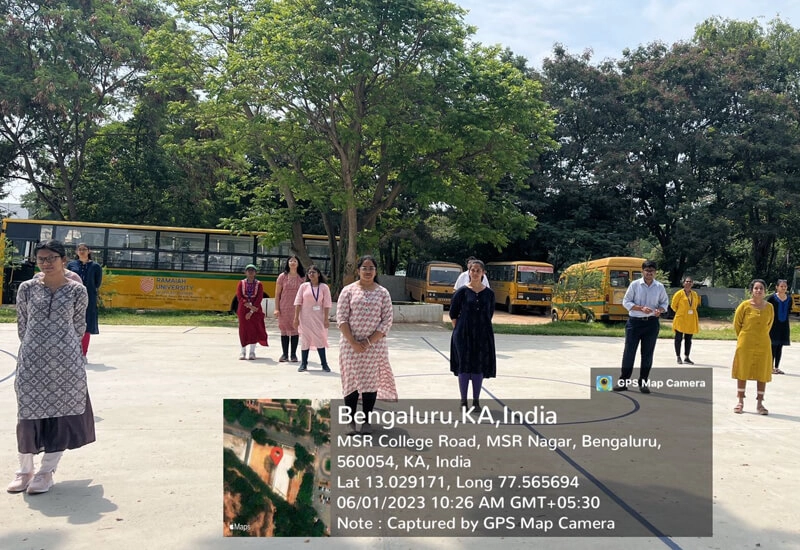
Power Walk - Simulation game as a part of CBTP
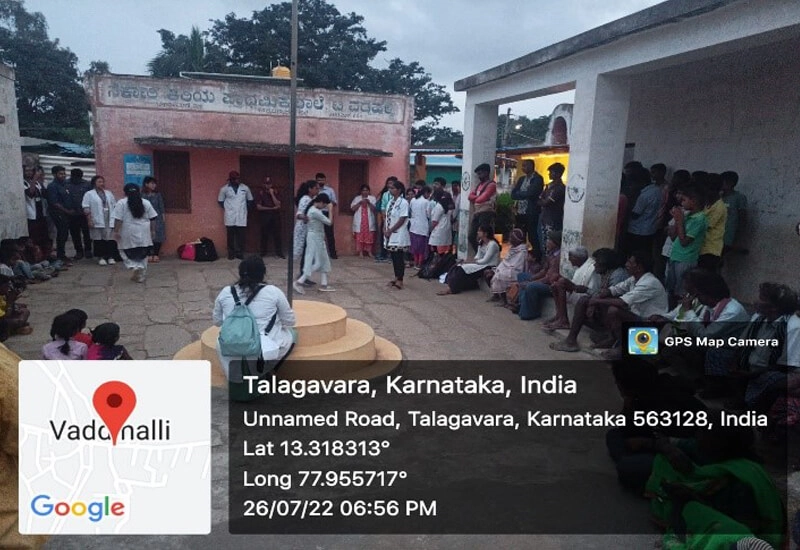
Community Health Education by the students
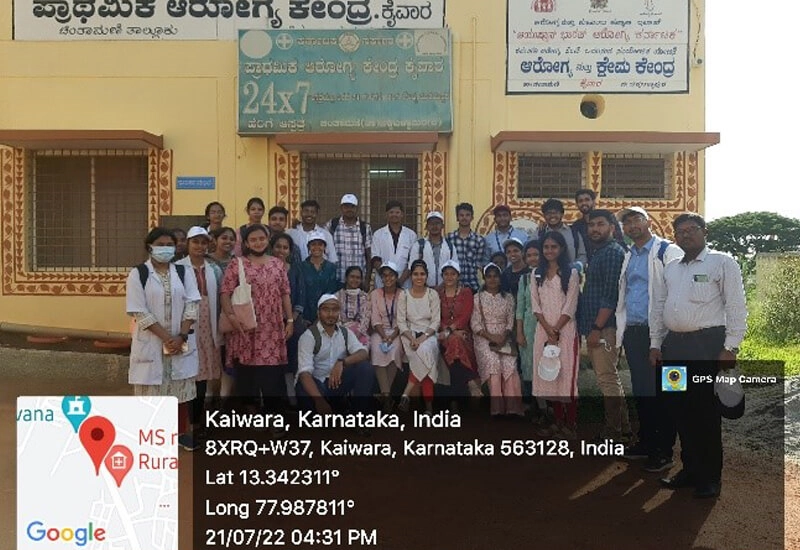
Visit to PHC during Community Based Training program
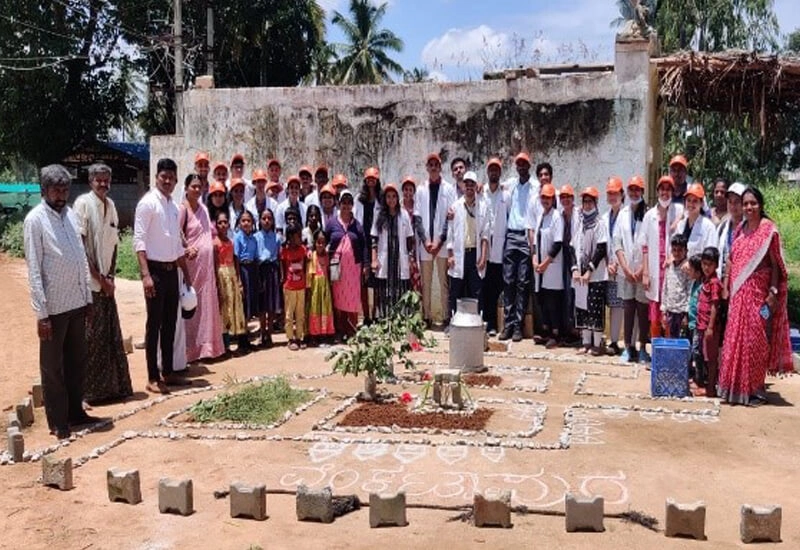
Social Mapping activity by the Students with participation from the villagers
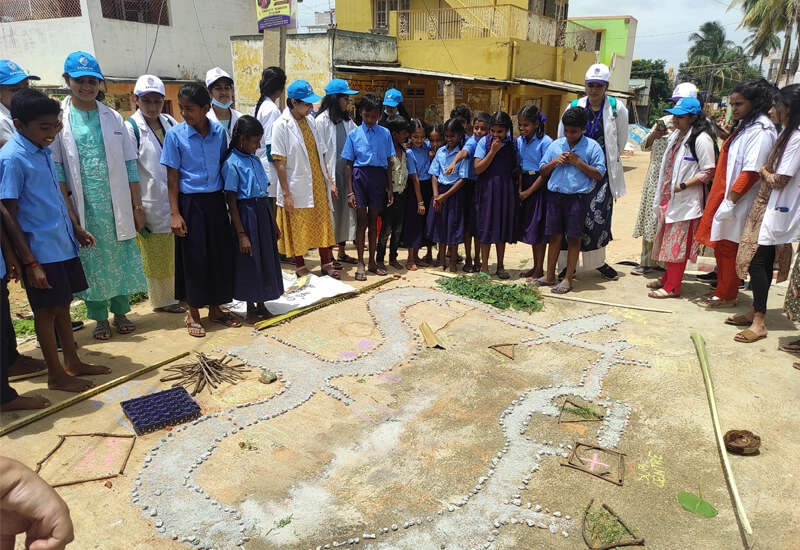
Social Mapping activity by the Students with participation from the villagers
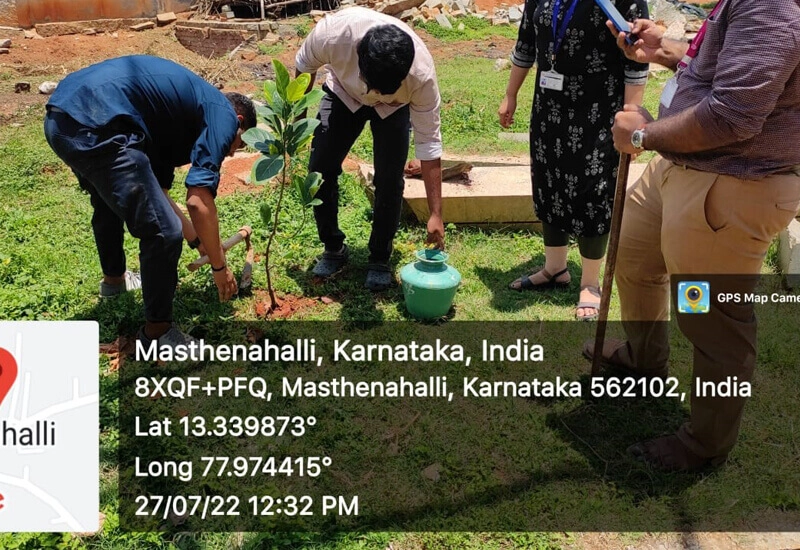
Shramadhan - As part of CBTP
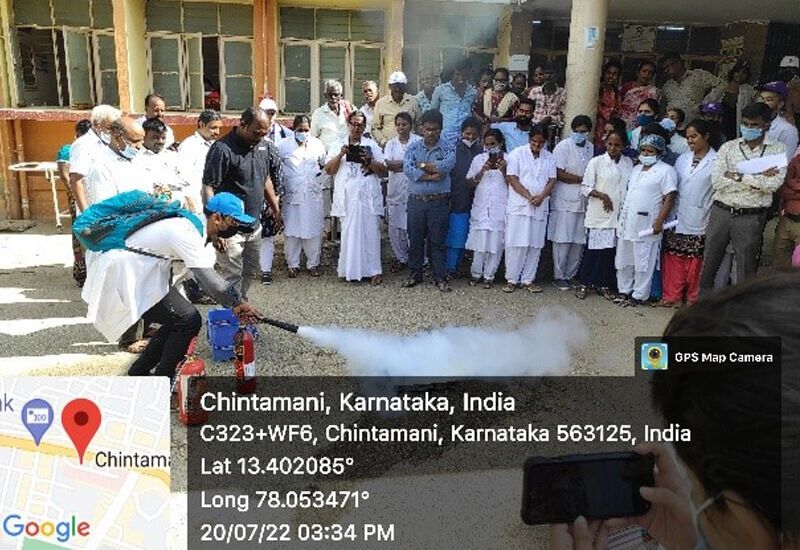
Fire safety Drill at Chintamani General Hospital as part of CBTP
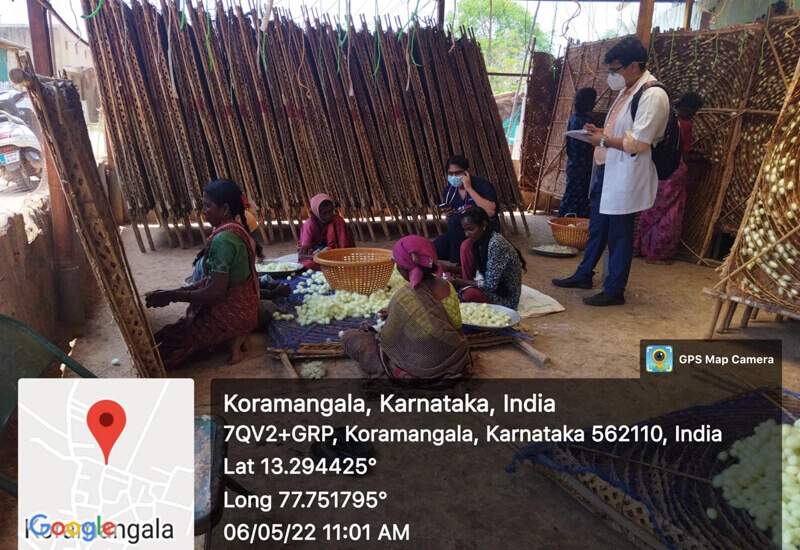
House to house Survey conducted by students
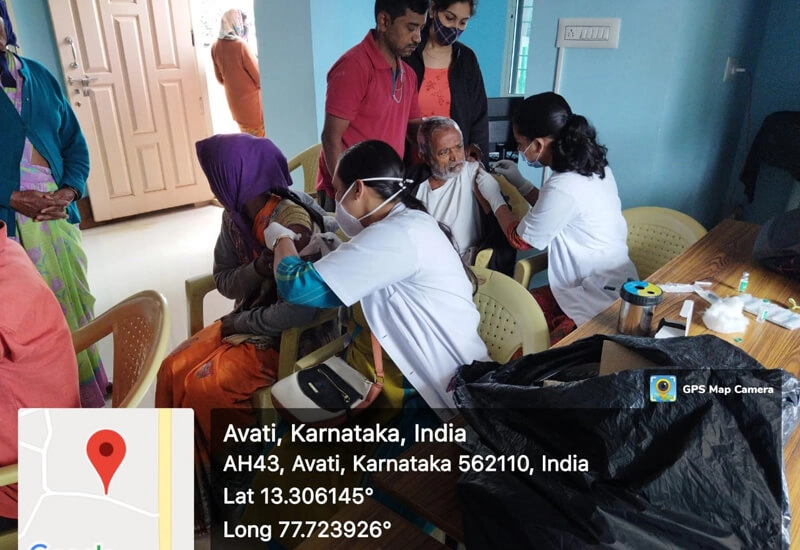
House to house Survey conducted by students
